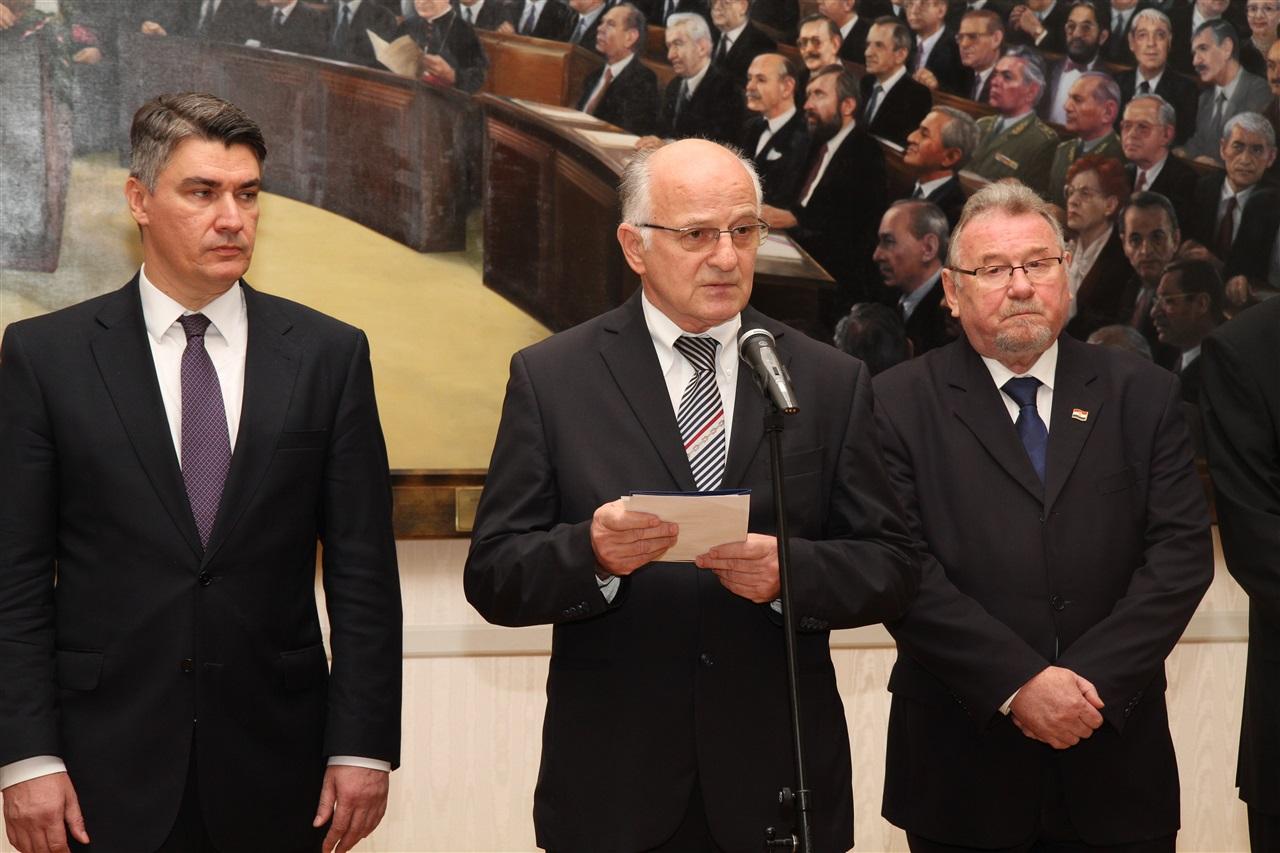
Zagreb - Speaking at a parliamentary reception on the 24th anniversary of Independence Day, Speaker Josip Leko said on Thursday that remembering those "important and far-reaching events" should be a signpost for the future and congratulated fellow citizens on this occasion, wishing everyone progress in a democratic and just Croatia.
"On 8 October 1991, united Croatia adopted the last important constitutional and legal decision on its road to full independence," Leko said, recalling the day when the first Croatian parliament adopted a decision to sever all state and legal ties with the former Yugoslavia.
On that day, MPs had the plebiscitary support of Croatian citizens, expressed at a previous referendum, and that decision was adopted in "extremely difficult circumstances," Leko said. The day before, the air force of the former Yugoslav army shelled the building housing the government "in an insane and desperate attempt" to kill Croatia's state leaders, he added.
He recalled the unity of the Croatian people and citizens on the road to the common goal, an independent Croatian state built on parliamentary democracy. He especially noted the unity in the Homeland War. "Our strongest weapon were a strong will, the unity and togetherness of all patriots, regardless of political affiliation, faith and ethnicity, as well an unwavering desire to achieve life in the freedom of an independent, democratic, European Croatia."
Leko thanked all defenders, highlighted the "wisdom and perseverance" of Croatia's first president, Franjo Tuđman, "whose strategic decisions led us in all the crucial moments in the struggle for independence." "In crucial moments, parliament always confirms its historic task and responsibility for the Croatian people and society," he said.
Speaking of present-day Croatia, Leko said it was a respected international factor, a member of the European Union and NATO, "recognised as a state, an example of progress to other countries in the region."
EU accession increased Croatia's political responsibility, for the situation in Europe and in Southeast Europe as well as globally, and as a Mediterranean country Croatia is interested in closer cooperation with other Mediterranean countries, including those in north Africa, notably in light of the current refugee crisis, Leko said.
It is in our interest that there is peace and stability in all those countries because every political crisis there indirectly has an adverse effect on us, he said. "We can't and mustn't turn a blind eye to current events, the large wave of refugees and migrants. I have a message for Croatia here, but for Europe too: let's be human to people."
He also commented on Croatia's parliamentary election on November 8. "Each of us must deal with their own conscience and their own responsibility, not just we, members of parliament, but voters too who, with their votes, decide on the direction Croatia will carry on."
He said the fight against corruption and organised crime must remain uncompromising because they "poison our society (and) eat away at sound economic foundations... In order to be successful in that job, we must have an independent judiciary, an effective state administration and full press freedoms."
"The long and painstaking struggle with the economic crisis has exhausted our country. Thanks to the perseverance and work of this government in dealing with the crisis, the results of positive change are finally visible and I hope it will soon be even better soon," Leko said.
The rule of law is the only solid foundation on which we can continue to build democratic Croatia and enable the free development of its economy, to the benefit of all its citizens, the Croatia we dreamt of for centuries, the one we fought for in the Homeland War and the one we wish to leave our children, and we seek our togetherness in goals based on democratic principles, he said.
The reception was attended by numerous guests, including former and incumbent MPs, Prime Minister Zoran Milanović and presidential envoy Vladimir Šeks.

.png)
